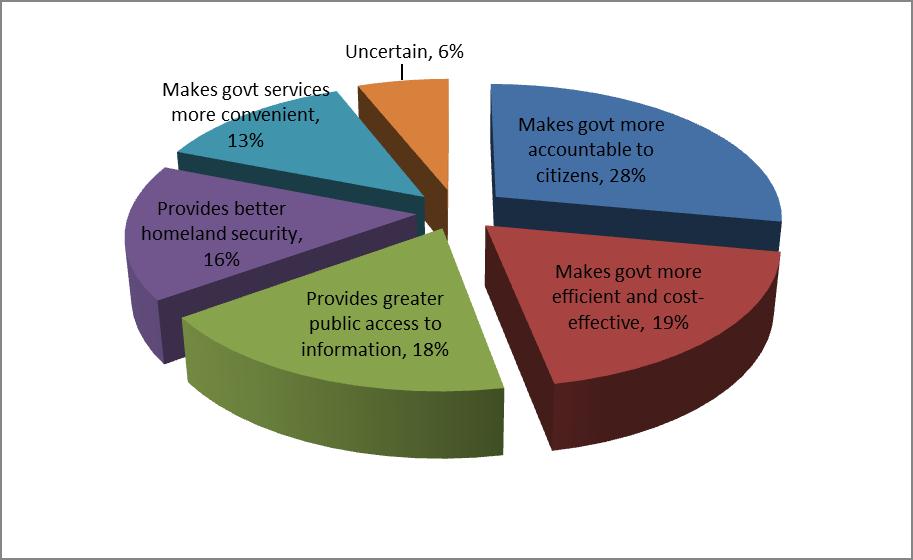By: Darrell M. West
Reported by: Aldwin Urbina (M1)
Chapter 7 / Citizen Use of E-Government
Summary
This chapter identifies the general public or the citizens as a critical factor in the adoption and dissemination of technology. In general, consumers that are more adept to new technologies, that they wouldn’t have any problems at integrating the use of such technologies in their daily lives, are more receptive to technological innovation. In a series of national public opinion surveys conducted in the United States in 2000, 2001 and 2003, results show that the Americans who have visited government websites tend to be male, younger, better educated, and high wage-earners. Generally, older individuals make less use of the Internet so they are also less likely to access government websites. Also, women and those with lower education attainment and lower incomes are less likely to visit government websites due to lower interest in such sites and the existence of other kinds of demands that are placed on their time.
As some portion of the population has the financial means and certain level of computer skills, which enables them to take advantage of the Internet, a significant portion does not have these resources. This creates what is known as “digital divide”. Until there exist a huge gap between the number of users and non-users of the Internet, it would be difficult to make effective use of the technology, attain the economy of scale that lowers per-unit costs, and use the technology as a tool for social and political transformation. Considering the huge amount of investment in establishing e-government systems, it takes significant level of usage on the part of the general public to obtain the economies of scale that makes implementation of such technologies viable.
Citizens have a wide range of perceptions about different kinds of technologies. Some inventions are warmly embraced by the public because they pose little threat and the advantages are clearly presented. Other technologies, however, have aroused great fear because people do not understand the invention. Rather than liberating people, some technologies are perceived to take away freedom, invade privacy or endanger sought-out social objectives. Considering the citizens’ generally positive views about the Internet, most are favourable toward e-government.

Figure 7-1. Results of the survey conducted in 2003 about the perception of the general public on the most positive thing that may result from e-government.
However, not all perceptions of the general public regarding e-government are positive. Citizens have fears about e-government with respect to its possible impact on security and privacy. Citizens’ worries about security and privacy have been provoked by incidents in which public and private sector information systems were compromised. Since the last two decades, there has been a remarkable increase in the number of illegal access into computer systems. Thus, empirical evidence show that fears of citizens related to security and privacy are well grounded.
In part, citizens’ perceptions on e-government reflect how they perceived traditional government. Citizens who mistrust the government tend to feel more negatively about e-government. However, there are several factors beyond e-government that affect the perception towards traditional government, among others, quality of service delivery, views on the role of government in the society, feelings about the ability of the government to bring about significant change. To some extent, e-government is evaluated on different terms with that of traditional government.
Reporter’s Own Thoughts
Upon examination of the data provided in the surveys conducted by the author, it seems like e-government has a very promising future. From the survey, it was provided that young generations are more likely to use the technology. So as time passes by, the segment of the population that is receptive to technological change grows bigger. Thus, the adoption of e-government is expected to improve in the succeeding years. However, it is important for governments to continually advocate or promote e-government, and address the related critical issues, to avoid setbacks.